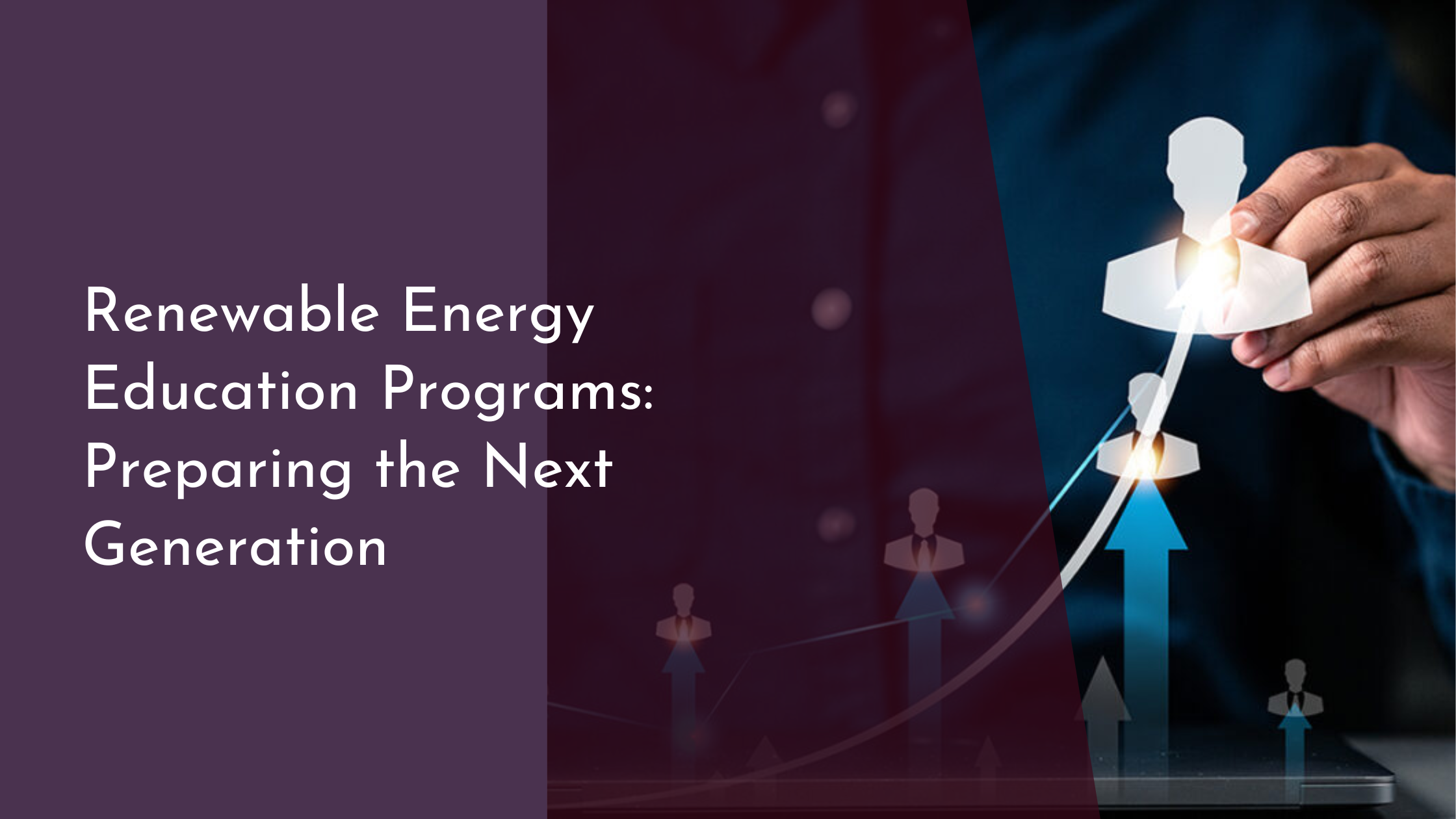Renewable Energy Education Programs: Preparing the Next Generation
As the global community increasingly recognizes the necessity of transitioning to sustainable energy sources, the importance of renewable energy education programs has never been more apparent. These programs are essential for preparing the next generation of innovators, scientists, and policymakers, who will usher in a new era of energy solutions. By educating young minds about the significance and intricacies of renewable energy, we equip them with the knowledge and skills needed to make informed decisions and drive sustainable progress.
Understanding the Need for Renewable Energy Education
The growing concern over climate change and environmental degradation has brought renewable energy to the forefront of global discussions. This shift underscores the urgent need for education systems worldwide to incorporate renewable energy studies into their curricula. By fostering an understanding of renewable energy, students can appreciate its role in reducing carbon emissions and mitigating climate change impacts. Equipping students with this knowledge ensures they can actively participate in discussions and initiatives aimed at promoting environmental sustainability.
Furthermore, the renewable energy sector is experiencing rapid growth, leading to an increased demand for skilled professionals. Education programs focused on renewable energy concepts and technologies play a crucial role in meeting this demand. As industries shift towards sustainable practices, students educated in such programs will find themselves well-prepared for emerging job opportunities. By integrating renewable energy education into academic programs, we not only prepare students for future careers but also empower them with the ability to contribute positively to global environmental goals.
Key Components of Effective Learning Programs
An effective renewable energy education program should encompass a comprehensive curriculum that covers a broad spectrum of topics related to sustainable energy. This includes the science behind various renewable technologies, such as solar, wind, geothermal, and bioenergy, as well as an understanding of their environmental impacts and economic viability. By providing a holistic view, students can grasp the interconnected nature of energy systems and the global shift towards sustainability.
Hands-on learning is another crucial component that enhances the effectiveness of these programs. Engaging students with experiential learning through laboratories, workshops, and real-world projects enables them to apply theoretical knowledge to practical situations. This approach not only deepens their understanding but also fosters critical thinking and problem-solving skills. When students can see first-hand the impact and potential of renewable technologies, they are more motivated to pursue careers in this vibrant and essential field.
Innovative Approaches to Teaching Young Minds
Innovative teaching methods can significantly enhance the learning experience for students in renewable energy programs. Digital tools, such as simulation software and virtual reality, can offer interactive and immersive experiences that bring complex energy concepts to life. By visualizing and experimenting with renewable energy systems in a virtual environment, students can better understand the principles and challenges involved, leading to more engaged learning.
Project-based learning is another effective approach that encourages students to collaborate on solving real-world problems related to renewable energy. By working on projects that require research, design, and implementation of renewable solutions, students gain practical experience and develop teamwork and leadership skills. This hands-on approach not only makes learning more dynamic and enjoyable but also prepares students to tackle the challenges they will face in their professional lives.
Collaborations Driving Educational Success
Collaboration between educational institutions and industry leaders is vital for the success of renewable energy education programs. Partnerships with energy companies, research institutions, and governmental agencies can provide students with access to the latest technologies, industry insights, and internship opportunities. Such collaborations enrich the educational experience by bridging the gap between academia and the real-world energy sector.
Additionally, global collaborations can enhance the scope and impact of these programs. By sharing resources, curricula, and best practices, educational institutions across different countries can create a more cohesive and standardized approach to renewable energy education. This international cooperation not only broadens students’ perspectives but also fosters a sense of global community united by the common goal of sustainable development.
As we look towards a future powered by clean and sustainable energy, the role of renewable energy education programs becomes ever more critical. By understanding the need, implementing effective components, adopting innovative teaching methods, and fostering collaborations, we can ensure these programs prepare the next generation to meet the challenges and opportunities of a rapidly evolving energy landscape. Through education, we empower young minds to become the change-makers and innovators who will lead the way towards a sustainable, energy-efficient future.

